China in IOR: ‘peaceful rise’ no more
China has expanded its presence in the Indian Ocean Region. President Xi Jinping has abandoned Deng Xiaoping’s conciliatory posture for an aggressive, money-fuelled search for super power status
 Courtesy: Western Naval Command
Courtesy: Western Naval Command
China has expanded its presence in the Indian Ocean Region. President Xi Jinping has abandoned Deng Xiaoping’s conciliatory posture for an aggressive, money-fuelled search for super power status
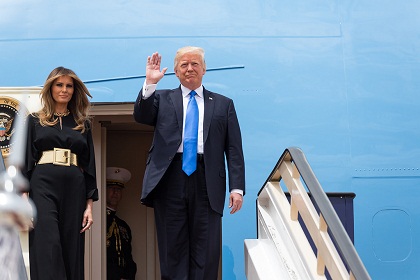 Courtesy: The White House/Flickr
Courtesy: The White House/Flickr
Trump’s first foreign visit to West Asia and Europe brought home what the president means by “America First” even as he stands accused of committing two major foreign policy transgressions
 Courtesy: Flickr
Courtesy: Flickr
Prince Salman’s accession to the throne after the death of Saudi King Abdullah on 23 January 2015 has been a game changer, both domestically and in West Asian politics. Within days, he sidelined rivals within the House of Saud, and took on Iran with a confrontational policy. But two years later, the results of his new strategy disappoint
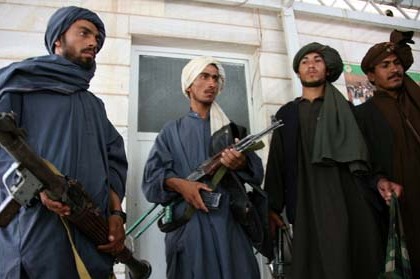 Courtesy: Flickr/ResoluteSupportMedia
Courtesy: Flickr/ResoluteSupportMedia
The Russians have concluded that the Afghan Taliban offer a better shield against the Islamic State than the old Northern Alliance. A negotiated settlement in Afghanistan could be achieved if Washington and New Delhi join Moscow, Beijing, Islamabad and Tehran in a joint effort.
 Courtesy: Manjeet Kripalani
Courtesy: Manjeet Kripalani
The crippling effect of American sanctions are thorough; designed to strangle economies and bring entire nations to a halt. However, they unknowingly pull people together, imparting a deep sense of patriotism and often sparking innovation which can quickly surpass any other world power. With sanctions being lifted on nations like Myanmar, Iran and, hopefully, Cuba, the question remains whether they will retain their uniqueness or fall into line with the rest?
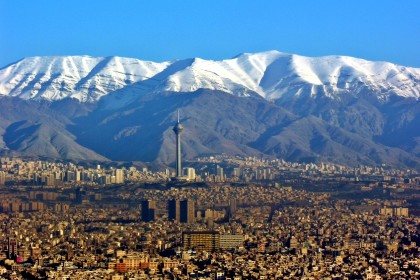 Courtesy: Wikipedia
Courtesy: Wikipedia
Despite the Joint Comprehensive Plan of Action having been in effect since January 2016, the promised business opportunities for Iran seem to have eluded them, as U.S. led economic sanctions still hold firm. With Prime Minister Modi’s upcoming visit in May, there is ample scope to redouble the India-Iran partnership for the strategic interest of both parties.
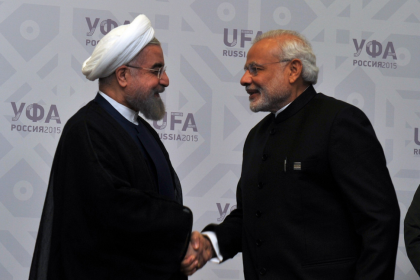 Courtesy: MEA / Flickr
Courtesy: MEA / Flickr
A month after visiting Saudi Arabia, Prime Minister Modi will visit Iran on 22 May. India's careful balancing of relations with competing parties in West Asia has let it remain a friend to all. But to play a role commensurate with its global vision, India must work on becoming more than a friend and instead be an indispensable partner to countries in the region.
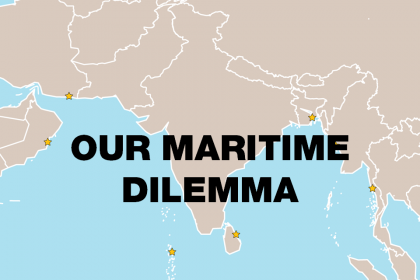 Courtesy:
Courtesy:
After decades of passivity, India is beginning to assert itself in the maritime arena. There is a whiff of salt in the usually 'sea-blind' corridors of Delhi, where the Modi government clearly sees the linkage between the possession of maritime wherewithal, both civilian and military, and the furthering of national prosperity, through ever-increasing trade.
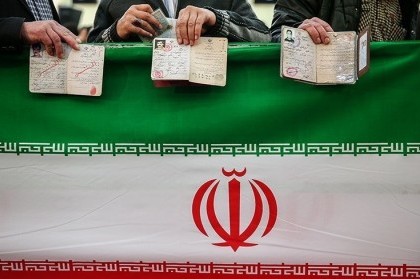 Courtesy: Tasnim News Agency
Courtesy: Tasnim News Agency
As Iran emerges from three decade of economic sanctions, it has embarked on a quest to reunite with its traditional trade partners like India. Both countries have much to give and take as they invigorate trade ties and explore new possibilities.
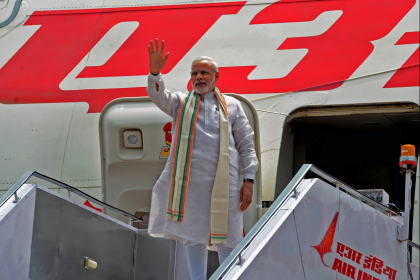 Courtesy: MEA / Flickr
Courtesy: MEA / Flickr
The talking points for Prime Minister Modi's upcoming visit to Saudi Arabia will include the obvious: oil, diaspora and economic engagement. What remains to be seen is how both countries differing relations with Iran and Pakistan might affect the dialogue.